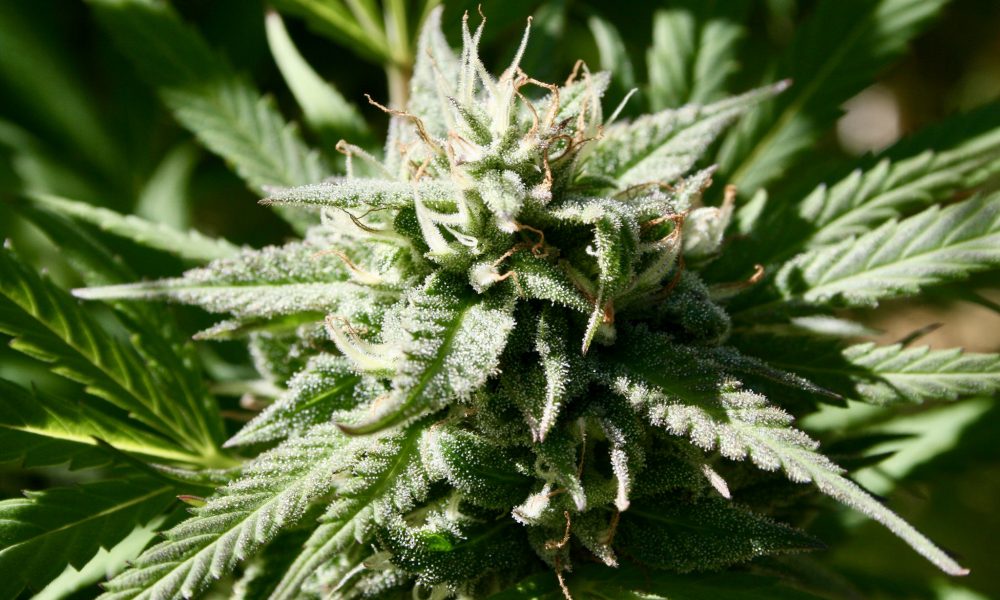Customs and Border Protection (CBP) marijuana seizures fell to a record low in Fiscal Year 2022, continuing an enforcement trend that advocates attribute to the state-level legalization movement, newly updated federal data shows.
Additionally, the first two months of the current fiscal year saw similarly low monthly seizure yields, with November 2022 standing out as having the least amount of cannabis seized during the period for which CBP makes comprehensive monthly data available.
CBP agents and officers seized more than 17,000lbs of marijuana nationwide during the first two months of FY23.
Filter by component, location, and drug type on our stats page: https://t.co/PP4NpM5Z0Q pic.twitter.com/qigx5FxjdT
— CBP (@CBP) January 3, 2023
CBP marijuana seizures have declined nearly 95 percent over the past decade, from a total of 2,822,478 pounds in Fiscal Year 2012 to just 154,797 pounds in 2022.
Significant annual drop-off is continuing in recent years as well. The 2022 figure is about half of the 319,447 pounds that were seized in the prior year, and 2020 to 2022 saw a 73 percent decline in the weight of confiscated marijuana.
There are several factors that could be at play, including shifting enforcement priorities, but experts generally view the trend as a reflection of reduced demand for smuggled illicit cannabis as more states have moved to legalize marijuana and provide people with access in a regulated, domestic market.
CBP agents took in 2.9 million pounds of cannabis in Fiscal Year 2013. The following year, the first-ever recreational marijuana shops opened in Colorado and Washington State, kicking off an era of reform that’s now seen 21 states enact adult-use legalization.
Meanwhile, in the first two months of Fiscal Year 2023, agents confiscated 17,406 pounds of cannabis. The November total—7,406 pounds—is the lowest amount CBP has reported seizing in a given month in recent history. In contrast, the agency busted people for 61,778 pounds of marijuana in November 2020.
A report from the Government Accountability Office (GAO) that was released last year also paints a clearer picture of who is getting caught up in its enforcement activities. At checkpoints across the country, agents are mostly taking small amounts of marijuana from American citizens, rather than making large busts of international cartels like some might assume.
Also, consistent with other studies and federal reports, the analysis showed a significant decline in cannabis seizures at checkpoints overall since 2016. In 2016, there were 70,058 pounds of marijuana seized at checkpoints by Border Patrol, compared to 30,828 pounds in 2020.
FBI’s Uniform Crime Reporting (UCR) program has similarly shown a notable decrease in cannabis “arrests” that are made at the local and state level as more states enact reform. (However, experts have raised questions about the quality of FBI’s data, based on alleged confusion among law enforcement agencies about reporting requirements.)
In another report from last year, the Congressional Research Service said that the spread of legal cannabis states domestically, combined with international reform efforts, has reduced demand for illicit marijuana from Mexico.
As part of its Fiscal Year 2023 performance budget summary submitted to Congress last year, the Drug Enforcement Administration (DEA) also acknowledged that as more marijuana is being produced domestically in the U.S., it’s undermining illicit cannabis trafficking across the southern border.
A study released by the Cato Institute in 2018 found that “state-level marijuana legalization has significantly undercut marijuana smuggling.”
Federal marijuana trafficking cases also continued to decline in 2020 as more states have moved to legalize, an analysis from the U.S. Sentencing Commission (USSC) that was released last year found.
Federal prosecutions of drug-related crimes overall increased in 2019, but cases involving marijuana dropped by more than a quarter, according to an end-of-year report released by Supreme Court Chief Justice John Roberts in December.
New York And New Jersey Marijuana Regulators Spar On Twitter Over Which State’s Legalization Plan Is Better
Photo courtesy of Brian Shamblen.
Read the full article here









